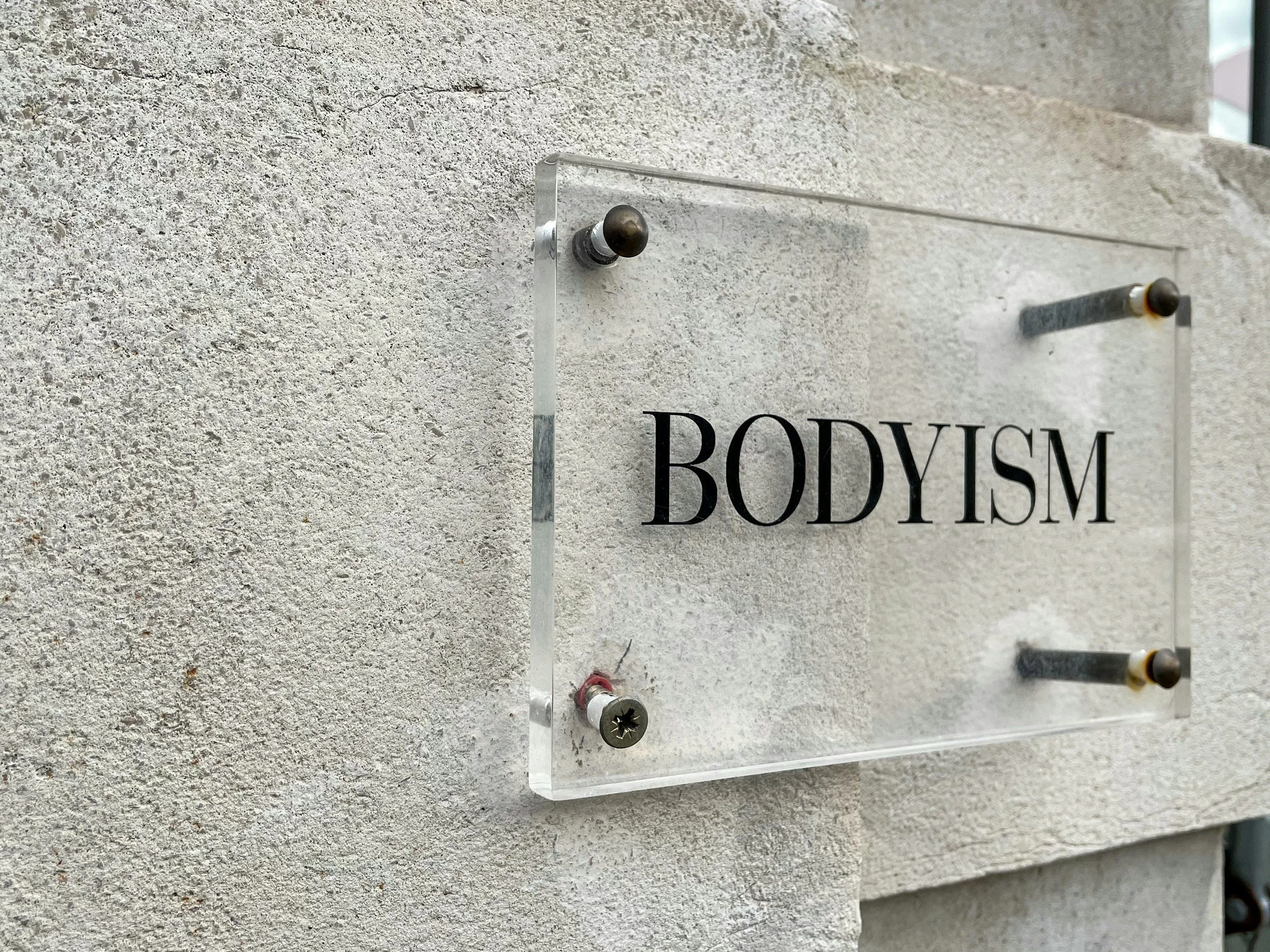Blog Posts & Resources
What Makes Atypical Anorexia So Dangerous? Why Your Weight Does Not Tell the Whole Story
When most people picture anorexia, they imagine someone who is visibly underweight — thin arms, sharp collarbones, dramatic physical changes. That stereotype is so deeply ingrained that many people who are suffering don't believe they qualify for support unless they "look sick enough."
But anorexia has never been a disorder defined by appearance.
And atypical anorexia proves that clearly.
Atypical anorexia is one of the most misunderstood, underdiagnosed, and deadly forms of eating disorders, and hundreds of thousands of people are quietly living with it while assuming they aren't "really" struggling because their bodies don't match what they've been told anorexia looks like.
Your body size does not reflect your level of medical risk. It does not show the degree of emotional pain. And it certainly does not determine whether you deserve treatment.
How to Stop Obsessing About Food: A Complete Guide to Ending Food Fixation and Finding Eating Disorder Support in Orlando, FL
If you're tired of thinking about food all day, feeling out of control around eating, or constantly planning what you "should" or "shouldn't" eat next, you are not alone. Food obsession is one of the most misunderstood symptoms of eating disorders — and one of the most exhausting.
Many people assume obsessing about food is a willpower problem.
It's not.
It's a brain and nervous system problem, often made worse by dieting, restriction, stress, trauma, and emotional overwhelm.
And in a city like Orlando — where fitness culture is loud, theme park season never ends, and brunch culture is practically a sport — it's easy for food fixation to become a daily battle.
Healing From Codependent Love: How Trauma Therapy Helps You Set Healthier Boundaries
There's a particular kind of exhaustion that comes from loving people too much and yourself too little. If you grew up with complex trauma, chaos, or emotional inconsistency, you may already know this feeling well. It's the quiet panic that rises when someone pulls away. The instinct to fix things before they break. The way your body tenses at the first sign of conflict. The belief that love is something you constantly earn — not something you're inherently worthy of.
This is the heart of codependent love.
And it doesn't come out of nowhere.
It is a relational survival strategy, built over years of learning that the only way to stay safe was to anticipate, soothe, or over-function for others.
A Support Person's Guide: How to Help Someone With an Eating Disorder (For Friends, Partners, and Family)
When most people picture anorexia, they imagine someone who is visibly underweight — thin arms, sharp collarbones, dramatic physical changes. That stereotype is so deeply ingrained that many people who are suffering don't believe they qualify for support unless they "look sick enough."
But anorexia has never been a disorder defined by appearance.
And atypical anorexia proves that clearly.
Atypical anorexia is one of the most misunderstood, underdiagnosed, and deadly forms of eating disorders, and hundreds of thousands of people are quietly living with it while assuming they aren't "really" struggling because their bodies don't match what they've been told anorexia looks like.
“I Feel Fat.” How to Improve Your Body Image from an Orlando Eating Disorder Therapist & Body Image Specialist
If you’ve ever thought “Why do I hate my body so much?” you’re not broken. Body hatred often comes from comparison, trauma, shame, or feeling unsafe in your body. This article explains why—and what actually helps.
“Why Do I Hate My Body?” Understanding Body Image Through the Lens of a Complex Trauma Therapist in Orlando
In a world that markets “self-improvement” like the newest iPhone, focusing on anything other than “what should I change about myself next?” can feel challenging. If you are already struggling with low self-esteem, the allure of a “glow-up” can feel exciting, addictive even. Living in this body feels intolerable, and I need to change.
So, what gets us to the point of “I hate my body?” Great question. The answer is rarely shallow. Body hatred is almost always a learned response. It is shaped by the environments we live in, the messages we absorb, the way we are treated, and the way Complex Trauma teaches the nervous system to survive.
“Help! My Daughter Is Barely Eating”: An Orlando Eating Disorder Therapist Responds
Help! My Daughter Is Barely Eating - But Says She’s Fine?
If you’re worried your daughter won’t eat, this guide explains the real reasons behind sudden food restriction, including anxiety, body image fears, and emerging eating disorders. Discover actionable next steps, how to talk to her, how to structure meals, and when to seek professional help.
A Letter to the Overwhelmed Trauma Client Who Is Exhausted From Holding Everything Together
To the Beautiful Girl Who is Terrified to Let Go:
There’s a version of you the world sees, capable, dependable, competent, the one who remembers everything, anticipates everything, and somehow keeps everything functioning even when you’re running on fumes. People admire you for being “strong” without ever realizing that strength was never a choice. It was a survival strategy.
And then there’s the version of you no one sees.
Why I Get It: Connecting on a Personal, Authentic Level Through My Eating Disorder Journey and Recovery
What Really Makes an Eating Disorder Therapist Effective?
People often assume that what makes a therapist effective is their training, and yes, I have that. I’m a doctor of clinical psychology, a Certified Eating Disorder Specialist with over 2,000 supervised hours, and I’ve worked across the full spectrum of eating disorder care: residential, PHP, IOP, and outpatient. That background matters. But it isn’t the real reason I understand eating disorders the way I do.
There’s a version of me most people will never meet, a quieter version. A girl who apologized after every sentence, who hid behind her hair and baggy clothes. She’s the reason I understand eating disorders the way I do.
Reentry Without Relapse: Returning to Routine After the Holidays in Eating Disorder Recovery in Orlando, Florida
The holidays are strange in eating disorder recovery. Even when the season brings meaningful moments, it also brings disruption. Your schedule shifts. Food shows up everywhere in unpredictable ways. Family dynamics can be loud. Sleep gets uneven. The nervous system works overtime. And by the time January rolls around, you might feel wrung out, tender, and unsure how to get back to yourself again.
Rethinking New Year’s Resolutions: Building Eating Disorder Recovery-Friendly Intentions for the Year Ahead
Each December, the world starts whispering about “fresh starts.” New Year’s Resolutions. New goals. New habits. New body. The messaging is everywhere: “New Year, New You.” But if you’re in the midst of eating disorder recovery, those words can feel more like a trap than a source of motivation.
The idea of New Year’s resolutions often disguises the same old cultural obsession with control, productivity, and physical perfection, masquerading as gratitude and self-improvement. It fuels comparison, self-criticism, and the illusion that you’ll finally feel worthy once you fix yourself.
When “Merry and Bright” Feels Out of Reach: Navigating the Holidays with Therapy for Complex PTSD
The holidays have a way of stirring hope. Maybe being home will finally feel comforting. Maybe the lights, music, and familiar rituals will reignite something inside you. Maybe this year will be the one that feels different. This will be the year complex PTSD does not win.
And for a little while, it can. The drive back, the smell of food, the first night surrounded by people, there’s a flicker of belonging. But then, almost inevitably, something shifts. A comment, an old dynamic, a familiar heaviness returns. You realize the environment changed, but the feelings didn’t.
That dissonance, between the world’s “merry and bright” and your quiet sense of distance, is one of the hardest parts of living with Complex PTSD.
The Cozy in the Chaos: Finding the Courage to Rest With Complex PTSD — from an Orlando Trauma Therapist
As the fall season comes to a close, winter pulls us inward and encourages us to rest. The days shorten, the air cools, and nature itself seems to whisper, pause. Yet for many living with complex PTSD (C-PTSD), the idea of slowing down feels anything but peaceful. Stillness can bring guilt, anxiety, or even panic. The drive to stay productive can feel impossible to resist, as though worth and safety depend on doing, not being.
If this sounds familiar, you’re not alone. Therapy for complex PTSD can help you understand why rest feels unsafe and how to create gentle rituals that help your body and mind find peace again.
Santa’s Sack of Sanity: Your Christmas Eating Disorder Recovery Kit
Christmas can be a jolly time full of good food, joy, and close family moments, but if you’re in eating disorder recovery, those same experiences can sometimes feel anything but merry. Family gatherings revolve around food. Routines vanish. Comments about bodies or diets fly without warning. It’s easy to feel like you’re carrying a sack full of stress instead of joy.
This season, instead of focusing on what to avoid, focus on what to pack: emotional tools, coping strategies, and comforts that help you stay steady when things get loud, unpredictable, or triggering. Here’s your Santa’s Sack of Sanity, a recovery-minded survival kit for Christmas and beyond.
The Gratitude Myth: Why Thankfulness Can Feel Hard With Complex PTSD
Every November, the cultural noise around gratitude gets louder. Social media feeds fill with daily “thankful for…” posts. Workplaces pass around lists of what people appreciate. Family gatherings often begin with going around the table and saying what you’re grateful for.
For some, these rituals feel warm and connecting. But if you live with complex PTSD (C-PTSD), gratitude can feel complicated—sometimes even painful. When your nervous system is wired to stay on guard, the pressure to feel thankful can feel invalidating.
Stuff the Turkey, Not Your Feelings: Boundaries for Navigating Codependency and Eating Disorders This Thanksgiving in Orlando, Florida
When most people think of Thanksgiving, it is painted as a holiday of gratitude, connection, and cozy family meals. The table is set, the dishes are overflowing, and the message seems simple: eat, be merry, and give thanks, not setting boundaries.
Fall Triggers, and an Eating Disorder: How the Change of Seasons Impacts Recovery
The shift from summer to fall often brings a mix of excitement and stress. For many, autumn means cozy sweaters, crisp air, and the promise of holidays ahead. But if you’re in eating disorder recovery, this season can bring unique challenges. Shorter days, busier schedules, and cultural pressures around food and body image can stir up old patterns or create new vulnerabilities in Eating Disorder Recovery.
Understanding how seasonal transitions impact recovery is key. With awareness and support, fall can become a time of grounding rather than a trigger for relapse.
Halloween and Eating Disorder Recovery: Coping with Candy, Costumes, and Social Pressure
As fall rolls in, Halloween is the first major food-centered holiday. It can be fun—lights, costumes, friends, and treats—but it can also crank up pressure: candy everywhere, body-focused outfits, parties, photos, and lots of casual comments about food and appearance. If you’re in eating disorder recovery or active treatment, the goal isn’t to white-knuckle the night; it’s to walk in with a plan that protects your progress and leaves room for some joy.
Where to Find Help for Eating Disorders in Orlando, Florida
Eating disorders are complex medical and psychological conditions that can affect people of any age, gender, or background. They require specialized, compassionate care—not just willpower or “trying harder.” The good news is that in the Tampa area, a wide range of resources is available to support eating disorder recovery.
This guide was created to serve as a starting point for anyone in Tampa who is seeking help for themselves or a loved one. Whether you’re looking for a structured treatment program, an experienced therapist, a specialized dietitian, or a supportive peer group, you’ll find trusted, evidence-based options here.
Eating Disorder Therapy in Orlando: What to Expect from Your First Visit
If you’re considering reaching out to an eating disorder therapist in Orlando, you’ve already begun your recovery journey. Reaching out is the first courageous step!
Beginning Eating Disorder Therapy can mean sharing experiences that you may never have spoken out loud before—your relationship with food, body image, and deeply personal struggles. While it can feel relieving, sometimes people feel nervous, shy, or are tearful in their first session – all completely normal. As therapists, we understand this vulnerability. It’s our job to provide a safe, supportive environment where your emotions are welcome and respected.
Knowing what to expect during your first session can ease some of those worries.



















